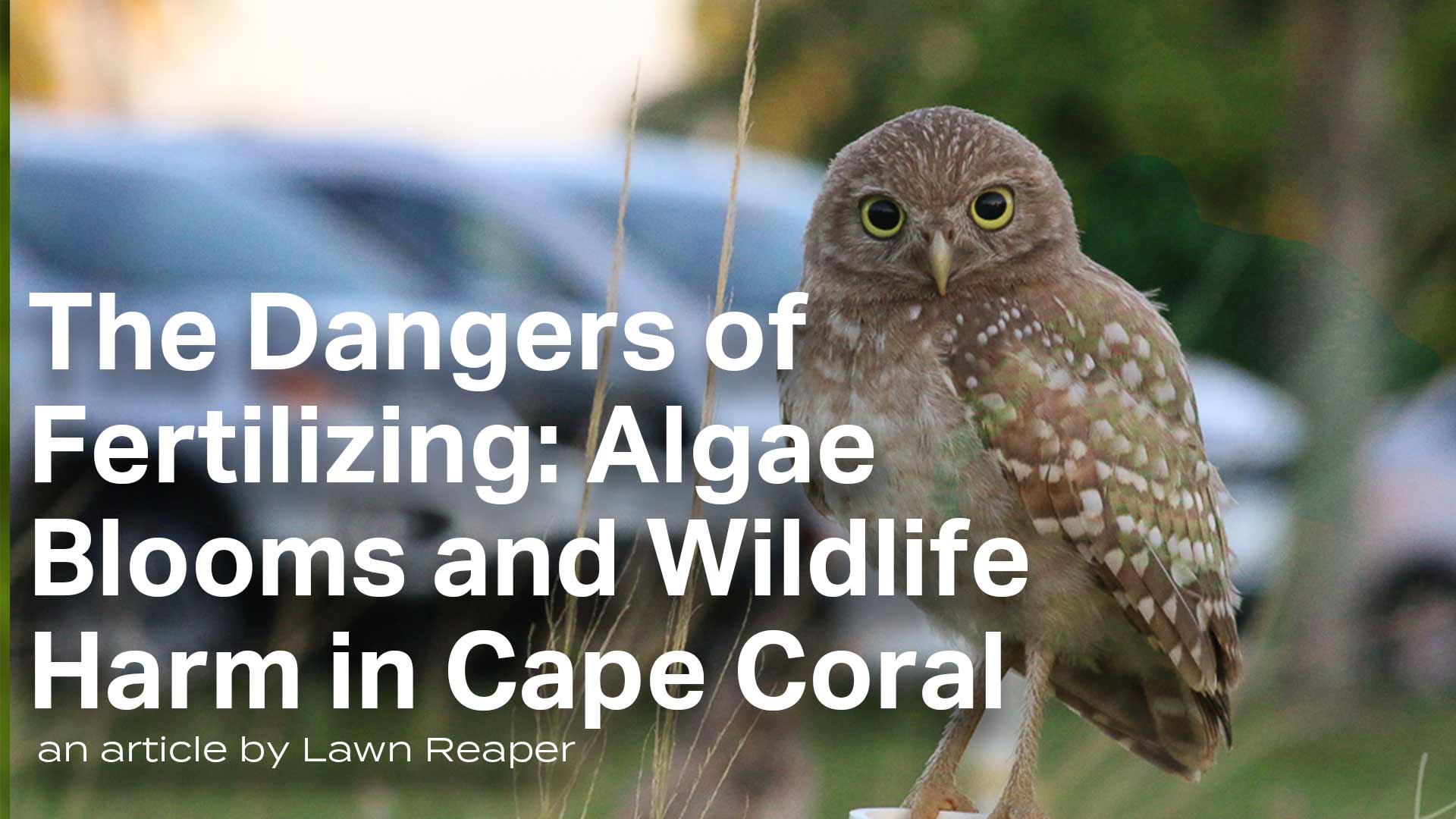The dangers & the facts about fertilizer in Cape Coral.
Fertilizers are commonly used to enhance the growth of plants and lawns, but their overuse can have detrimental effects on the environment, especially in areas like Cape Coral. One significant consequence of over-fertilizing is the promotion of algae blooms, which pose serious risks to pets, wildlife, and the overall ecosystem.
Algae Blooms: An Environmental Hazard
Algae blooms occur when excessive nutrients such as nitrogen and phosphorus, both found in fertilizers, enter bodies of water. These nutrients fuel the rapid growth of algae, leading to blooms that can cover large areas of water. While some algae are harmless, others can produce toxins that are dangerous to sea life, animals and humans.

Impact on Pets and Wildlife
Sea Creatures – Algae blooms reduce the oxygen levels in water, creating dead zones where aquatic life cannot survive. Fish, shellfish, and other marine organisms suffocate and die, disrupting the food chain and local fishing industries.
Toxicity to Pets: Pets, particularly dogs, are at risk if they drink or swim in contaminated water. Algae toxins can cause severe health issues, including liver damage, neurological problems, and even death.
Threat to Birds and Mammals: Wildlife that rely on these water bodies for drinking and feeding are also affected. Birds and mammals that consume contaminated water or prey on affected fish can suffer from poisoning, leading to population declines.
What fertilizers do:
Fertilizers are designed to promote plant growth, but when applied in excess, they can be washed away by rain into nearby water bodies. This runoff is a primary contributor to nutrient pollution, fueling algae blooms. The flat terrain and extensive canal system of Cape Coral exacerbate this issue, as water flows easily into canals and out to the Gulf of Mexico.
Responsible Fertilizer Use
It is crucial for residents and landscapers in Cape Coral to adopt responsible fertilizing practices:
Use fertilizers sparingly: Only apply the amount necessary for plant health and growth.
Choose slow-release fertilizers: These reduce the likelihood of nutrient runoff.
Create buffer zones: Plant native vegetation near water bodies to absorb excess nutrients.
Proper timing: Avoid fertilizing before heavy rain to prevent runoff.
While fertilizers can benefit our lawns and gardens, their overuse poses a significant threat to our environment and local wildlife. By adopting responsible fertilizing practices, we can help protect Cape Coral’s waterways, ensuring they remain healthy and vibrant for future generations.


